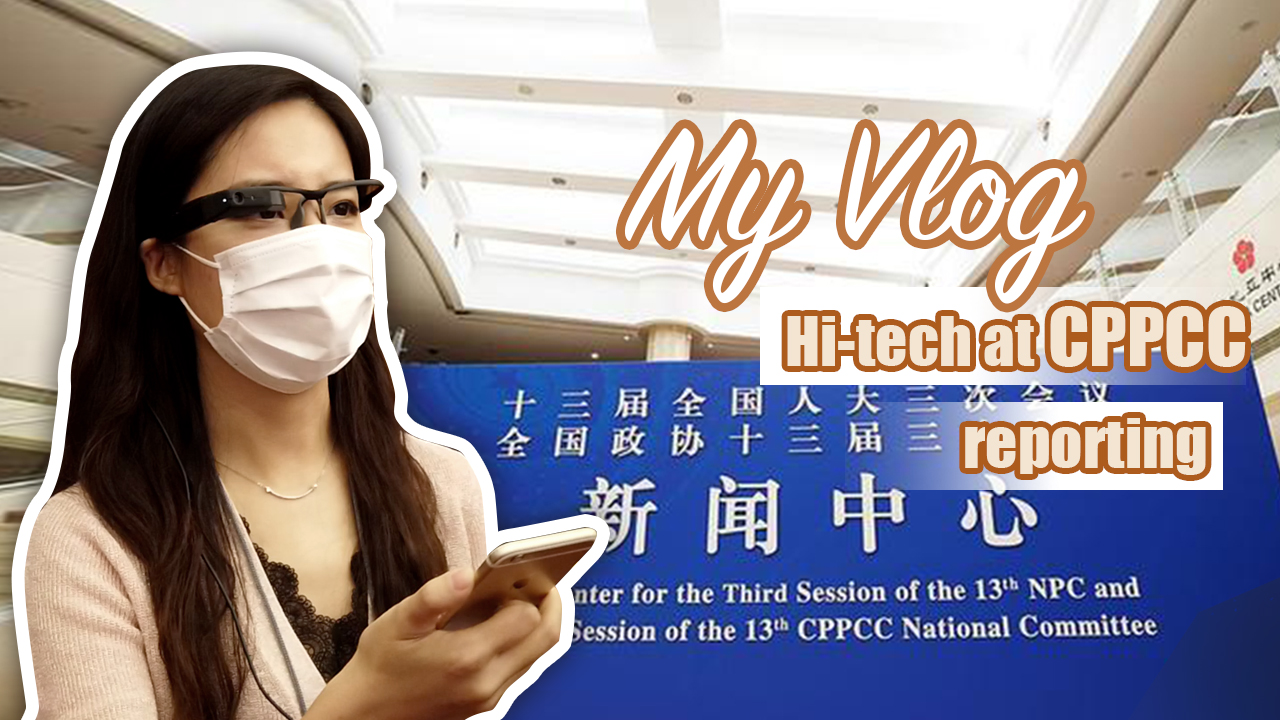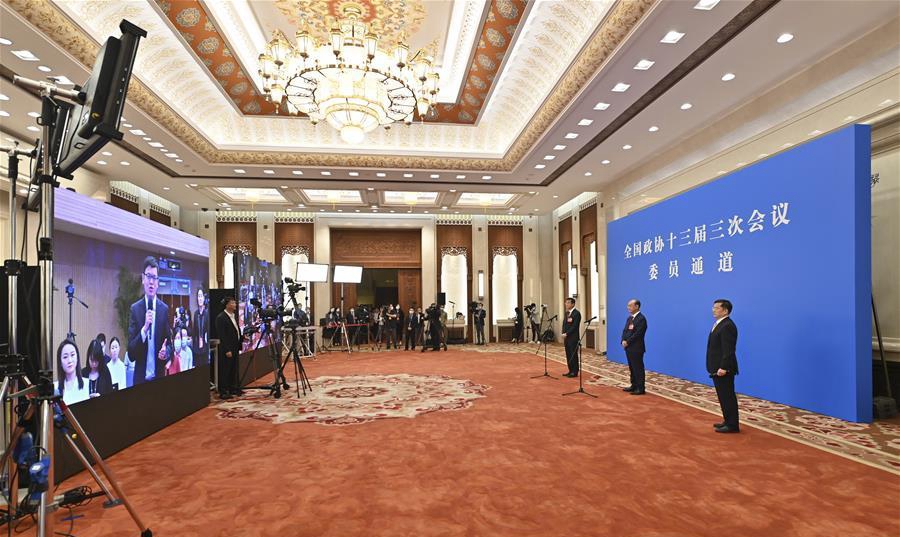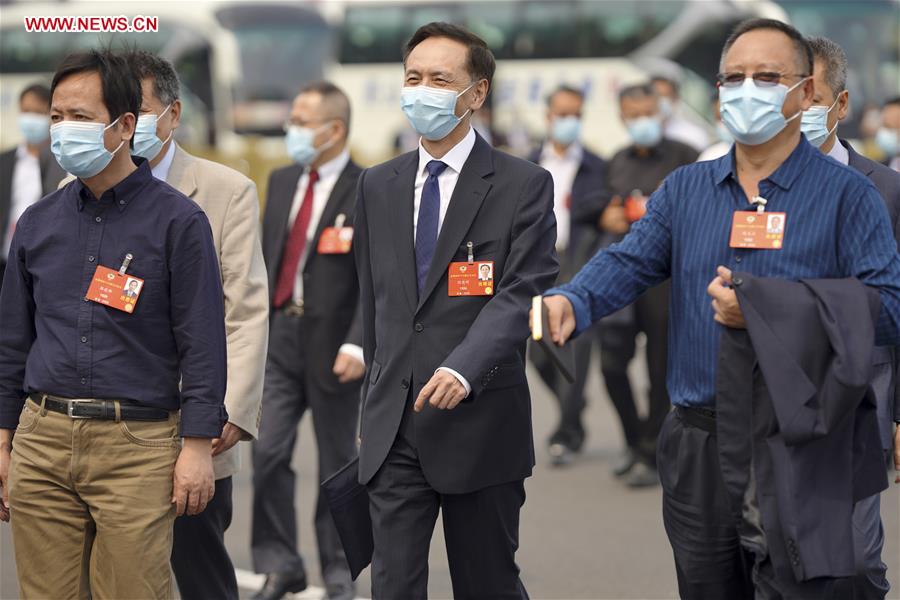01:32

The Chinese People's Political Consultative Conference (CPPCC) started its annual session on Thursday. Due to COVID-19, the meeting was postponed from March to May, and the session was also shortened. These days technology can bring the deliberations closer to the public.
Click here for a replay of the CPPCC opening session:
Special program on 2020 Two Sessions - Members' Corridor and opening session of China's top political advisory body
One day ahead of the session, the National Committee of the CPPCC held its first online press conference on Wednesday, at which spokesperson Guo Weimin and other officials took questions from journalists via real-time streaming by 5G wireless technology.
Speaking of the 5G, CGTN has also adopted the contactless eyeglasses for news coverage.
The eyewear displays information in a hands-free format that helps save time and provides protection amid COVID-19 epidemic.

Members of the 13th National Committee of the Chinese People's Political Consultative Conference (CPPCC) are interviewed via video-link ahead of the opening of the third session of the 13th CPPCC National Committee at the Great Hall of the People in Beijing, May 21, 2020. /Xinhua
Members of the 13th National Committee of the Chinese People's Political Consultative Conference (CPPCC) are interviewed via video-link ahead of the opening of the third session of the 13th CPPCC National Committee at the Great Hall of the People in Beijing, May 21, 2020. /Xinhua
According to a State Council executive meeting, China is adopting new ways of receiving proposals and suggestions from national legislators and political advisors, including via video-link, phone calls and the internet.
Officials of relevant State Council departments are also asked to tune in live to the deliberations of the government work report by lawmakers via video.
Read more:
CPPCC member on AI in times of COVID-19
Moreover, the website of the CPPCC National Committee started to seek opinions and suggestions from netizens on May 8, which helped the 2,100 national political advisers to hear more voices of the public before they gathered in Beijing.
Meanwhile, government officials who used to sit in on meetings during political advisory sessions as non-voting participants, are able to hear comments and suggestions by video link, telephones and the internet.

Members of the 13th National Committee of the Chinese People's Political Consultative Conference (CPPCC) walk towards the Great Hall of the People for the opening meeting of the third session of the 13th CPPCC National Committee in Beijing, May 21, 2020. /Xinhua
Members of the 13th National Committee of the Chinese People's Political Consultative Conference (CPPCC) walk towards the Great Hall of the People for the opening meeting of the third session of the 13th CPPCC National Committee in Beijing, May 21, 2020. /Xinhua
The CPPCC is neither a body of state power nor a policy-making organ, serving as an advisory body for the National People's Congress.
But the country's top political advisory body can gain substantial influence to shape public opinion through the internet and mobile technology providing the public with social media distribution and influence.
Reporter: Wang Mengjie
Cameraman and editor: Zheng Songwu
Copy Editors: Liane Ferreira, Bertram Niles
Cover photo: Yu Peng
Chief Editor: Chen Ran, Xu Jian
Supervisor: Zhang Shilei